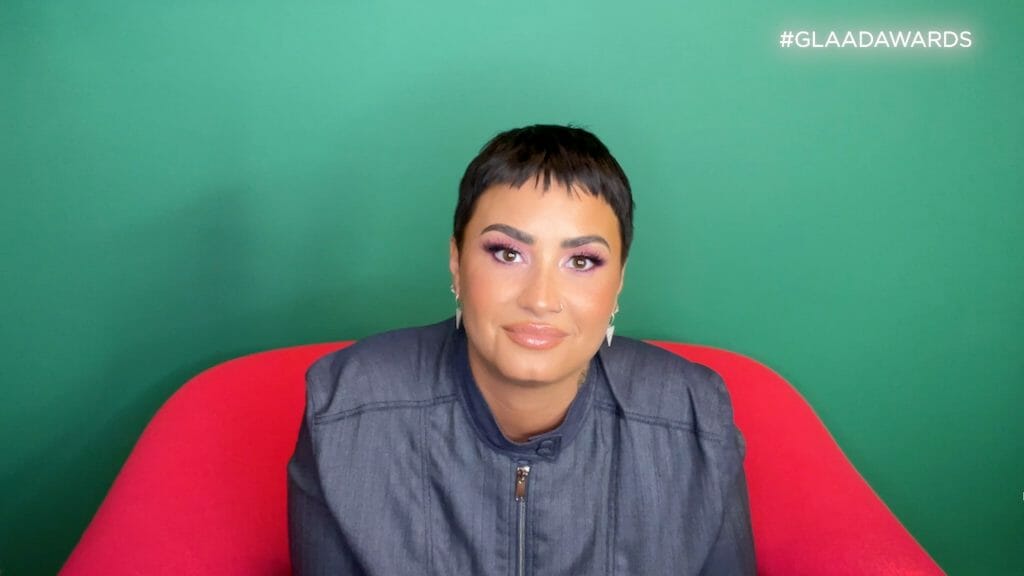Demi Lovato today announced that they are nonbinary and will be using they/them pronouns to describe themselves. Lovato made the announcement via their podcast “4D With Demi Lovato” and on Twitter.
“Gender is not simply male or female. Nonbinary people live outside of those rigid categories and they should be respected for who they are, which includes using the pronouns they tell us to use,” said Anthony Allen Ramos, GLAAD’s Head of Talent. “People identifying as nonbinary is not new—and recognition and visibility of nonbinary people has been growing. Demi has always been one of the loudest and proudest advocates for LGBTQ people and issues. In sharing their story today, they will educate countless people around the world and reach other nonbinary people with a message of pride.”
Lovato joins other high-profile people who have spoken out about being nonbinary including Amandla Stenberg, Asia Kate Dillon, Indya Moore, Sam Smith, Jonathan Van Ness, Lachlan Watson, Rhea Butcher, Nico Tortorella, Tommy Dorfman, Bex Taylor-Klaus, Layshia Clarendon, and B. Scott.
20 U.S. states and DC now allow residents to mark M, F, or X on their driver’s licenses or state IDs—giving nonbinary people an opportunity to have identity documents that accurately reflect their gender. U.S. passports do not yet have a nonbinary option, but in 2020 a federal court ordered the State Department to review its policy in a case brought by intersex Colorado resident Dana Zzyym.
A court in Oregon allowed the first-ever legal gender change to nonbinary in 2016, spurring a movement to allow X markers on IDs.
Nonbinary identities are growing; according to a July 2020 Trevor Project study of over 40,000 LGBTQ youth ages 13-24, one in four identified as nonbinary. The majority of those youth use they/them pronouns, but some nonbinary people use what are called neoprounons—less common pronouns such as ze/zim.
During their “4D with Demi Lovato” podcast, Demi hosted gender non-conforming author and artist Alok Vaid-Menon and spoke about pronouns. Vaid-Menon said: “It’s not as if trans and nonbinary people are born with gender literacy. It’s something that we develop in order to be better for each other. So, if we could do it, you could do it, too. It just takes practice and commitment.”
More information about nonbinary people available from the Nonbinary and Intersex Recognition Project.













